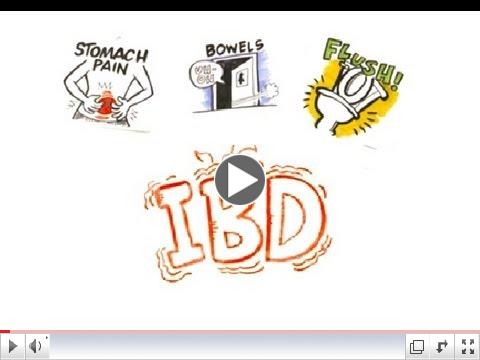Clinical patterns of Early-onset inflammatory bowel disease (IBD).
| |
It still debated as to whether "extremely-early-onset IBD (<5/6 years of age) is more extensive and severe and generally more challenging to manage than in older children or adults". A retrospective, comparative (to children with IBD > 6 years of age), descriptive analysis study undertaken to examine this, utilized 30 children < 6 years of age diagnosed with IBD.
Children diagnosed with early-onset IBD appear to have less abdominal pain, more bloody stools with an isolated colitis at presentation, a more aggressive course, increased use of immunosuppressants and more surgery.
Journal of Pediatric Gastroenterology & Nutrition
Video Feature
 | | Inflammatory Bowel Disease (IBD) |
|
Universal cranial ultrasound (U/S) screening in preterm (gest. age 33-36 wks.) infants.
| |
A retrospective study of 724 cranial ultrasound screened babies (gestational age 33-36 weeks) indicates:
Over 13% have cranial U/S abnormalities.
Babies born at 33-34 weeks gestational age have a fourfold increased likelihood of having an abnormal cranial U/S (compared to those born at 35-36 weeks gestation).
There is an association between U/S abnormalities found and being small for gestational age, a head circumference < third percentile, the need for ventilation or surfactant therapy, a low five minute Apgar score and neurologic abnormalities.
Pediatric Neurology
|
Autism Spectrum Disorder
(ASD) in term NICU infant survivors.
| |
Non-specific perinatal factors are associated with an increased risk of ASD.
A retrospective neurological analysis of 180 full term (> 37 weeks gestation) infants admitted to a neonatal intensive care unit (NICU) indicates that 6.8% develop ASD ; however no specific perinatal or neonatal issue appears associated with its later development.
ASD occurs more in term NICU survivors that in the general population, most often associated with another neurologic abnormality. Screening of term NICU survivors is important. Pediatric Neurology |
|
Association of antibiotics in infancy with early childhood obesity.
It appears that giving pregnant mothers antibiotics during the second or third trimesters may increase the risk of childhood (to age 7 years) obesity by 84% perhaps by altering normal maternal - offspring microbiota exchange.
"Infancy may also be a critical period when environmental factors exert a lasting effect on the risk for obesity" A cohort study of 64,580 children which examined the relationship between prescribed antibiotics given between 0 - 23 months of age and later obesity, indicates that cumulative exposure (mean 2.3 episodes) to broad-spectrum antibiotics statistically increases the likelihood of obesity between 2 and 5 years of age. JAMA Pediatrics |
Cyberbullying victimization / mental health in adolescents, & the moderating role of family dinners.
A cross-sectional observational study of a large group of 12-18 year olds which investigated the associations between cyber bullying and mental health (internalizing/externalizing behaviors) and drug problems, and evaluated the effect of family contact and intercommunications indicates that having family dinners together may protect adolescents from the deleterious consequences of cyber bullying.
JAMA Pediatrics
|
Video Feature
(via YouTube)
 | |
Cyber Bullying
|
|
Intravenous immunoglobulin therapy for refractory recurrent idiopathic pericarditis.
Recurrent idiopathic pericarditis is a complication occurring not infrequently in children following an episode of acute pericarditis, often post - cardiac surgery (postpericardiotomy syndrome). Treatments include non-steroidal anti-inflammatory drugs, corticosteroids and colchicine.
Two children with refractory idiopathic recurrent pericarditis treated with three and five monthly high-dose (2g/kg) intravenous immunoglobulin injections had full resolution of their effusions without complications.
Pediatrics
|
Observation is a valid way of assessing common variables in typical infant babbling & identifies those in need of support.
Infants may show abnormalities in speech and language early, for example canonical babbling (repetition of syllables - "ba ba ba ba") appears around 6-7 months and abnormalities may be a marker for subsequent speech impairments. Abnormalities of the components of speech (partial closing of the glottis, lips, use of front and back of the tongue, pronouncements from the throat, etc.) may be identified in babbling infants by a speech and language pathologist with high specificity at 12 and 18 month of age. These infants require further support.
Acta Paediatrica
|
|
|
Download, print and pin this information on your office wall.
-This is a "Must Have" (Ed.)
|
|
Underwriting Opportunities
|
With a circulation over 5,000, Updates in Pediatrics offers an excellent opportunity to promote your brand at affordable rates.
|
|
Updates in Pediatrics is brought to you by:
| |
|
|
|